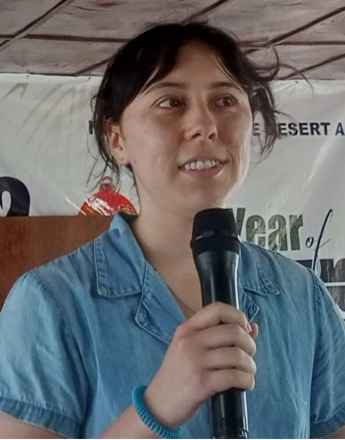The global battle over abortion rights continues to be a contentious and emotionally charged issue, with organizations like Pro-Life Global actively campaigning against the practice. Pro-Life Global, a U.S.-based organization, estimates that 73 million abortions occur worldwide each year, a figure they use to underscore the magnitude of what they consider a human rights tragedy. During a presentation at a Liberian school, Melenie S. Sharp, Vice President of Pro-Life Global, emphasized the organization’s mission to train young people as advocates for the anti-abortion cause, equipping them to spread awareness and challenge pro-choice narratives. This strategy involves mobilizing a “foot soldier” network of primarily young individuals, with the organization claiming to have trained approximately 8,000 people thus far. Sharp’s address highlighted the organization’s core belief: that a fetus is a human being with an inherent right to life, and therefore, abortion constitutes a violation of that right. This foundational principle fuels their efforts to offer alternatives to abortion and empower women to choose life.
Pro-Life Global’s approach encompasses several key facets. Firstly, they challenge the narrative that abortion is harmless to women, emphasizing the emotional and physical repercussions some women experience post-abortion. Sharp argues that these women are often silenced or stigmatized, and Pro-Life Global aims to provide a platform for their stories to be heard and to facilitate healing. Secondly, the organization actively works within communities, churches, and online platforms to reach women facing unplanned pregnancies. They offer support and resources, aiming to provide viable alternatives to abortion. This includes partnerships with organizations like PreBorn!, which they credit with saving thousands of babies worldwide. Thirdly, Pro-Life Global centers its message on the sanctity of life and often intertwines it with religious beliefs, emphasizing the love of Jesus Christ as a motivating factor in their mission.
Sharp’s presentation in Liberia also touched on the legal and political landscape surrounding abortion, particularly in the United States. She lauded the Supreme Court’s overturning of the landmark Roe v. Wade decision, highlighting Pro-Life Global’s involvement in protests leading up to the ruling. This legal victory, from their perspective, represents a significant step towards protecting the unborn. However, she also criticized the prevalence of insurance coverage for abortion services in the U.S., arguing that it limits women’s choices by potentially preventing them from purchasing insurance plans that exclude abortion. This critique reflects a broader debate about the role of insurance companies in healthcare decisions and the potential conflict between individual beliefs and employer-provided healthcare plans.
Beyond the legal and political arena, Pro-Life Global also addresses the societal pressures surrounding unplanned pregnancies. Sharp criticized parents who pressure their children into having abortions, characterizing such actions as harmful and extreme. This points to the complex dynamics within families facing these difficult situations and the potential for coercion and pressure. Sharp’s address concluded with a call to action for the students, urging them to become ambassadors for the pro-life movement within their schools and communities. She framed this advocacy as a contribution to the common good of society, aligning their activism with a broader social responsibility.
The presentation’s location, Liberia, adds another layer of complexity to the issue. While abortion is illegal in Liberia, it is still practiced clandestinely, often driven by economic hardship and other challenging circumstances. This highlights the global disparity in abortion access and the challenges faced by women in countries with restrictive laws. Pro-Life Global’s presence in Liberia suggests their intent to extend their influence and advocacy beyond the United States, working within different legal and cultural contexts. The organization’s message, therefore, resonates differently depending on the specific audience and the prevailing societal norms.
Pro-Life Global’s activities represent a broader trend within the anti-abortion movement. Their focus on youth outreach, legal advocacy, and community support highlights the multifaceted strategies employed to advance their cause. Their emphasis on the emotional and physical impact of abortion on women, coupled with their efforts to offer alternatives, aims to reframe the narrative surrounding reproductive rights. The organization’s strong stance against abortion is rooted in their belief in the sanctity of life, a conviction that drives their activism and shapes their interactions with individuals and communities. Their continued efforts, alongside other anti-abortion organizations, will undoubtedly continue to shape the ongoing debate about reproductive rights globally.


